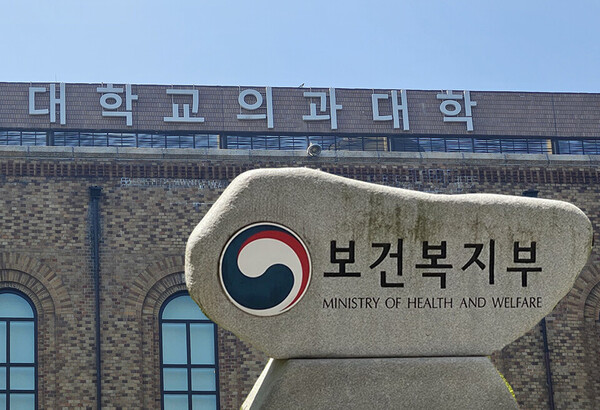The Korean medical community is facing an unprecedented crisis as tensions escalate between the government and healthcare professionals over the proposed increase in medical school admissions by 2,000 in 2025.

The dispute has broadened from trainee doctors to encompass the entire medical sector, with signs of widespread resistance against government pressures.
On Monday, Seoul threatened to suspend some 7,000 striking trainee doctors' medical licenses for at least three months, adding that the license suspension could lead to a year of delay in becoming specialist physicians.
Professors raise voice against government, some start to resign
In response to the potential suspension of medical licenses, 84.6 percent of 293 out of 431 tenured professors at Seoul National University Bundang Hospital in a survey said they would take a collective action. Senior physicians at university hospitals are often called "professors" because they teach medical school students, too.
Joining the move, professors from Chungnam National University College of Medicine and its affiliated hospitals issued a statement, vowing to use all means to ensure residents and students face no punishment or disadvantage. They warned against the undue legal processes being imposed on residents.
The Medical Professors Associations of Korea has also advised against compliance with the Ministry of Education's request for medical colleges to submit their plans to increase admission quotas by Monday.
The association argues that last year's demand survey was conducted without essential procedures, such as evaluating educational capacity and consulting medical faculty opinions.
Amid these developments, some professors have begun to resign, citing the added burden of work due to the absence of residents and interns.
Notably, Professor Yun Woo-sung from Kyungpook National University Hospital recently announced his resignation, lamenting the unchanged and worsening conditions of essential medical fields like surgery over two decades.
He criticized the government's policies as ineffective and harmful, expressing disappointment over the lack of support for the medical community.
"There's no room for a logical and reasoned discussion on medical issues now," Yun said. "The government is more focused on swaying public opinion than reaching a rational conclusion or consensus."
Yun's frustration extended to the broader medical community and the government's handling of the crisis.
"We are in a dire situation where young doctors and residents, who bear the brunt of the workload in hospitals, are being forced to shoulder the blame for the current medical crisis," he said. "I find it shameful to stand by passively, merely opposing government policies without actively supporting the residents fighting for their rights."
Yun's decision to resign reflects a broader sense of burnout and disillusionment within the medical profession.
"I have long been burnt out, and every day, I think about quitting," he said. "With no residents or students, one might think it's easier, but it's actually more draining."
This situation has made me reconsider my priorities, focusing on my family and living a more typical life, Yun added.
Government warns license suspension to residents not returning to work
Meanwhile, the Ministry of Health and Welfare has begun administrative actions, including the suspension of medical licenses, on Monday against resident doctors who submitted collective resignation letters.
This move comes after an inspection of 100 training hospitals revealed that 72 percent of the resident workforce had left their posts.
The government emphasized that a medical license suspension could delay the acquisition of specialist qualifications and affect future employment opportunities.
"Violating the government's order to resume work will inevitably lead to a minimum of a three-month license suspension," Vice Minister of Health and Welfare Park Min-soo said. "Such disciplinary action will delay the acquisition of specialist qualifications by at least one year and could potentially disadvantage individuals in future employment due to the recorded history of the administrative action."
With over 9,000 resident doctors facing license suspension, there are growing concerns about a significant gap in essential medical services for at least a year. The government, however, has indicated that the suspension process will be carried out in stages, taking into consideration the potential impact on healthcare delivery.
"Although 9,000 resignation letters were submitted, the actual number of absentees is around 7,000," Park said. "The process for license suspension is underway and is likely to be executed sequentially, if absence is confirmed through on-site inspections starting from May 4th, suspension notifications could begin the following day."
Even if negotiations between the medical community and the government commence, initiated disciplinary actions will be non-reversible, Park added.
Park emphasized the government's commitment to employing all available means to ensure severe and emergency medical care remains unaffected.
Related articles
- University leaders, medical professors clash over med school enrollment quotas
- Korea's med school craze: 3,093 students applied for 5 additional spots
- Seoul moves to ease penalty on medical malpractice to placate physicians
- Government seeks resolution with medical community amidst healthcare crisis
- Seoul fully allows telemedicine in response to striking physicians
- Seoul launches emergency operation center to ensure critical care amid physicians' walkouts
- 40 med schools request additional 3,401 student enrollment for 2025 academic year
- Med school professors sue health, education ministers to nix student quota hike
- After exodus of trainee doctors, cash-short hospitals scramble to borrow money
- Korea mobilizes over ₩200 billion per month to maintain emergency care
- Court rejects doctors' group exec's request for stopping license suspension

